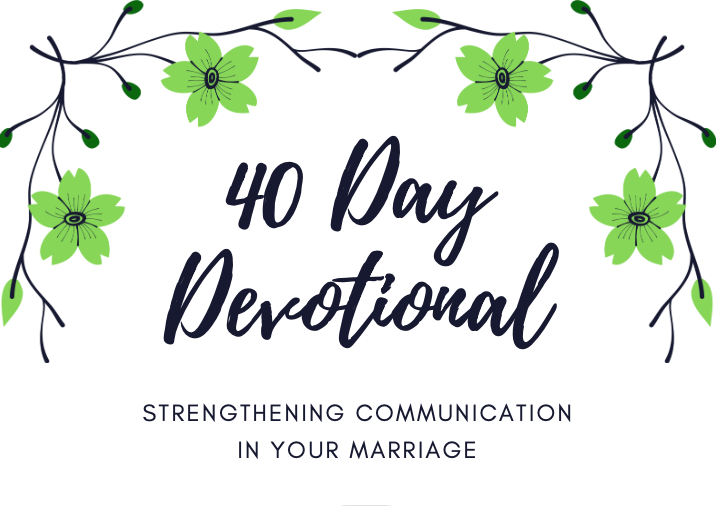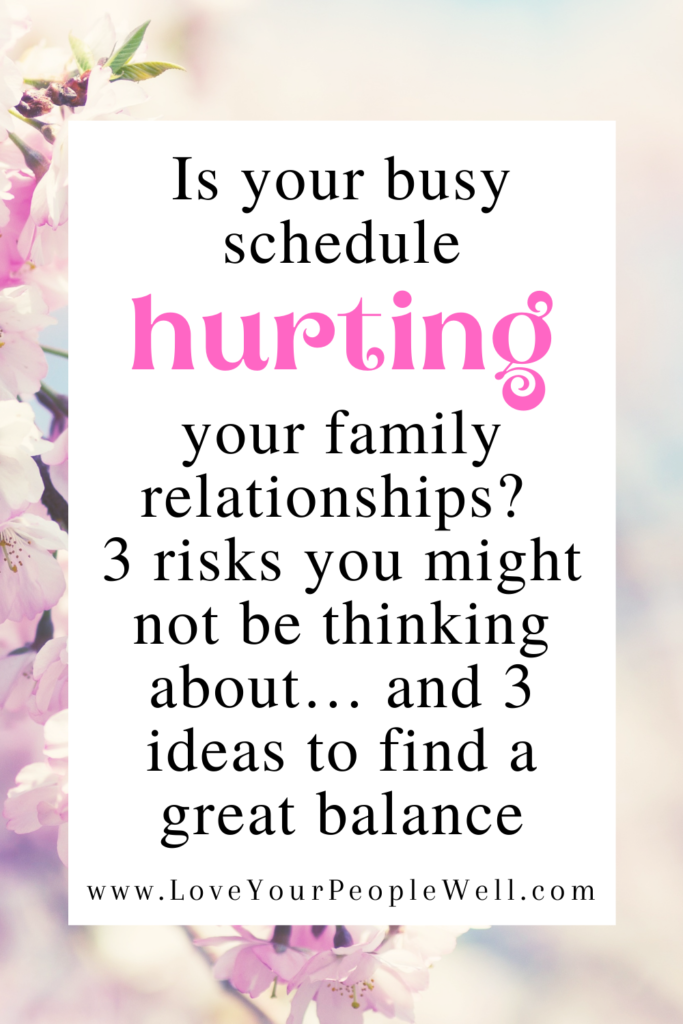What are we talking about today?
Communication can be hard work. But it’s the centerpiece of great family relationships! And if passive aggressive behavior is present in your relationship, you simply cannot build the intimacy and closeness that you really want.
When we struggle with mom anger, fear of conflict, or anxiety about our relationships, it can be easy to fall back on a passive aggressive communication style. This never actually solves the problem!
In today’s episode, we’re looking at not only what passive aggressive behavior looks and sounds like, but why it happens and practical steps to stop. We want to replace it with healthy communication and deeper relationships.
Let’s dive in.
Listen to Episode 76:
If today’s topic is meaningful to you, you’ll also want to check out these earlier podcast episodes that connect with this same topic:
- Episode 16 // This simple change in your communication will improve your marriage, your parenting… actually, every relationship you have!
- Episode 25 // Improve your communication skills with these 5 helpful tips to become a great listener
- Episode 40 // Your words are powerful. But are you using them to help or hurt your loved ones? In marriage, parenting, friendships… your words matter.
- Episode 62 // What to do after you’ve yelled at your kids (and how to stop it from happening in the first place)
[This post may contain affiliate links. If a purchase is made, I may receive a small commission at no extra charge to you.]
Snag your resources here!

If you’re working on communication, one of the best places to start is in your marriage. This 40 Day Devotional will walk you through specific Scriptures, along with guided reflection questions and communication starters, to strengthen communication in your marriage.
Let me also offer a FREE resource that I know will be helpful:
- When communication is a struggle, conflict is usually a part of the problem. So grab a FREE copy of my 10-Point Conflict Resolution Checklist. When emotions get high, just pull out this checklist and follow the steps to stay calm and productive.

[This post may contain affiliate links. If a purchase is made, I may receive a small commission at no extra charge to you.]
Today's Episode Highlights
You want close relationships. Comfortable, intimate family relationships. Deep conversation and connection with your favorite people.
But passive aggressive communication will never achieve those goals.
So today, let’s look at what it is, why it happens, and what to do about it.
What is passive aggressive behavior?
Basically, passive aggressive behavior (or communication) happens when someone expresses a hard emotion such as frustration, disappointment or anger in an indirect way. This typically happens with our words (or refusal to talk about certain things) and our behaviors.
Often, passive aggressive communication includes things like sarcasm, sulking, using the silent treatment, or avoiding people, tasks, or activities. Someone is showing their emotions without verbalizing them, taking ownership of them, or even acknowledging them.
Want some examples of what this might look like?
- Claiming you are “fine” when you are obviously upset and angry
- Denying anything is wrong while giving heavy sighs, pouting, slamming doors, or having a sullen attitude
- Sarcasm, backhanded compliments, using the silent treatment, avoiding people or activities.
- In your marriage… Procrastinating in doing an activity that you know is important to your husband, because you’re upset with him or you don’t want to do it but aren’t telling him that. Maybe you “forget” to take his best work suit to the dry cleaners because you don’t really want him to go on this business trip.
- In your parenting… Expressing sarcasm to your kids when you are feeling frustrated, instead of addressing the behavior that is upsetting you. You might say things like “Well of course you’re whining, what other option is there?”
The impact on your family relationships
There are many ways that passive aggressive behavior has a negative impact on your marriage and parenting.
- First: it’s not honest! We cannot be intimate with people if we are not being real about our emotions.
- In the end, nothing will change. The things that bother you will continue to bother you, because they are not getting resolved.
- Everyone gets frustrated. This behavior creates feelings of frustration, guilt or resentment in your husband and kids.
- Communication becomes a mystery and a game in the family dynamic. This is not only unpleasant and confusing, but often unhealthy.
- Not only will you not get what you want, you are also likely to trigger the other person to also act passive aggressively or to become more aggressive in an effort to fix the problem.
Why do we act this way?
There are 3 big reasons why people start to communicate in a more passive aggressive manner.
Perhaps it is because you don’t understand your emotional experience or have a good vocabulary to talk about it or even identify the correct emotion. This makes it difficult to actually deal with the emotions!
Or, you may be uncomfortable with conflict. When we are avoiding conflict or in “people pleasing” mode, it is often tempting to act passive aggressively just to feel like we are keeping the peace.
Sometimes, if you’ve tried to be assertive or resolve a conflict and feel like it never worked, we give up and start to act in a more passive aggressive way.
Is passive aggressive behavior a sin?
Some may agree, but I would argue that yes, passive aggressive behavior is a sin issue.
There are two particular Scriptures that lead me to this conclusion.
First, James 4:17. “If anyone, then, knows the good they ought to do and doesn’t do it, it is sin for them.” If there is ever a nagging feeling that you shouldn’t be acting or communicating in a certain way (and usually, if we are being passive aggressive, there is!) this is sin.
In addition, let’s consider 1 that this is specifically a sin, let’s consider 1 Corinthians 10:23-24 together.
“I have the right to do anything,” you say—but not everything is beneficial. “I have the right to do anything”—but not everything is constructive. No one should seek their own good, but the good of others.”
Passive aggressive behavior is never about seeking the other person’s good. It is about ourselves. And in the end, this makes it a sin issue.
What should we do in order to get back healthy communication in our family?
The best antidote for passive aggressive communication is assertiveness.
This means that you are confident and calm, and you are able and willing to express your needs while respectfully responding to other people’s needs.
You need to avoid being aggressive (loud, yelling, demanding, overly blunt), and make sure you’re considering the other person’s point of view and emotional experience. But, you also need to avoid being a pushover (totally shutting down, giving in to everyone else’s desires), and make sure you are noticing your own needs and practicing verbalization of those.
It can help to label on the front end of a conversation when you need or what you’re feeling that may impact your communication. This might sound like: “I’m feeling really (angry, upset, passionate) about X. I don’t want to let my emotions get the best of me, so I wanted to let you know. What I really need right now is…”
As you’re making this change, give yourself regular reminders: Your feelings and desires matter. But they don’t trump everyone else’s.
5 practical steps to be more assertive and less passive aggressive
First, try to increase self awareness.
- Can you notice the temptation in your heart to act this way? At first, you’ll probably notice it after it’s happened, or maybe while it’s happening.
- Try to identify why it’s happening. What are you ACTUALLY feeling? Why are you feeling that way
Next, work on practicing using emotion words. Label the feeling, even if it’s only to yourself and God at first. Alongside that, practice communicating what you actually are feeling, thinking, wanting, or needing. Start during prayer and journaling. Start with a friend. Or stand in front of the mirror.
Hopefully, you can have a conversation with your husband, and maybe even with your older kids. Acknowledge your struggle and identify ways they can help you. Yelling “stop it” or “you’re doing it again” is probably not helpful. Maybe your husband can have a gentle prompt that will remind you to communicate differently.
Fourth, try to identify ways that your husband and kids ARE doing a great job and you ARE happy about the relationship or their behaviors. Verbalize these! Practice sharing that compliment and gratitude with them. It will start to shift your perspective.
Finally, moving forward, when you recognize a hard emotion (you’re frustrated, upset, angry, etc) – pause before doing anything. Try to prepare for a real conversation. It may help to come up with a standard phrasing, like “Honey, I love that you (this, that), it is so helpful. I am really struggling with (x, y, z) and I’m feeling X or I think I need Y.”
Friday Faith Follow-up
When people are being passive aggressive with us, it can be really frustrating. But, as always, we have control over our response… and for the sake of our family relationships and out of obedience to God, we want to respond well.
That’s why in today’s short bonus episode, we’re looking at 4 reminders from Scripture about how to respond to difficult communication in order to move things in a healthy and biblical direction. Dive in for encouragement and help!
Hey, before you go!
- Join us in our free, private Facebook Group! This community is all about engaging, encouraging, and equipping each other as sisters in Christ.
- If you find my podcast or blog valuable, please support this ministry with Buy Me A Coffee!
- Make sure you Follow or Subscribe to the podcast on your favorite player.
- Share this episode with a friend who needs to hear it; just text or email the link.
- And hey, I’d love to connect with you on Instagram! @loveyourpeoplewell
Don't miss future episodes!
Follow the show on:
A reminder of the Disclaimers & Disclosures Policy: I am an affiliate with many of the resources I recommend, which means I may receive a small commission if you make a purchase through my provided links. I never recommend products I don’t love! Also, I am a licensed therapist but this podcast is not therapy. It is not professional or personal advice to your specific situation. Get info about professional counseling here.




